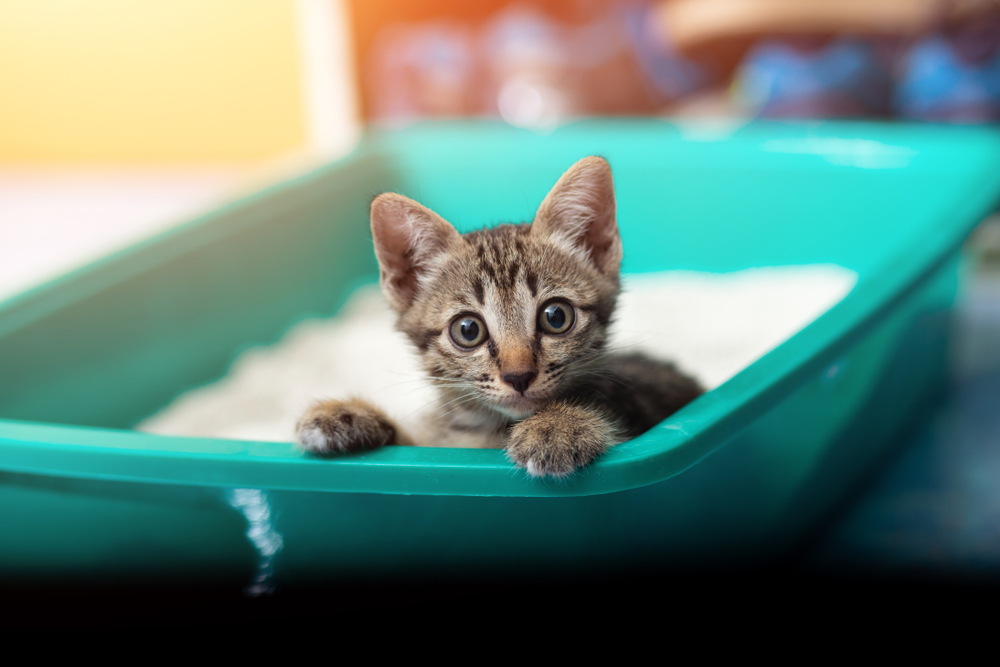Is it enough to just clean your cat’s litter box? Here are some things that you can look for while cleaning your pet’s litterbox that could help diagnose problems sooner, and with a better prognosis.
The biggest issue: a blocked cat. However, you can also find out information such as stress, anxiety, urinary infections, irritable bowel syndrome, diabetes, and so much more. Now the litter box alone may not help your veterinarian to diagnose something, but it will definitely help and be a great start on what to do next!
What should I be looking for?
Well, there are a few things you will want to keep track of for your feline friends:
• How frequently is your kitty is urinating or defecating?
• Volume of urine — is there barely anything happening or is there so much that you are like I am not sure how they peed this much!
• Do I see anything abnormal, like blood, that should not be there?
• Is our feline friend making any noises when trying to use the bathroom?
• Has anything new happened or changed (cats HATE change) that might make them avoid their litter box?
• How much time are they spending in the litterbox?
• Are they having trouble getting to the litter box, or getting in or out of it?
Now out of these things to watch for, the most emergent things to look for are straining to urinate & yowling (as well any vomiting or lethargy with these). If you notice any of these you want to see a veterinarian right away. Addressing these issues promptly is important in order to have a better prognosis.
Why is a blocked cat so important to get to a vet?
The reason this is so important is because cats can sometimes have blockages in their urethra caused by crystals/stones, debris from the bladder or even blood clots causing them to not be able to urinate and causing pain. If not looked after right away, these can cause side effects as serious as death.
What should I expect when taking my cat to the vet for litter box issues?
Urine Issues
The first thing any veterinarian will want to do is a urinalysis so you may want to pick up a collection kit to keep at home for when/if this occurs so you can bring one in with you to your appointment if still urinating. This will look for infections with bacteria, glucose, blood, and crystals. Depending on what is found on the urinalysis, your veterinarian may want to also do radiographs to check for things such as stones. If stones are found then you may have to get your furry friend some emergency surgery. Now if your cat is blocked and not urinating it would be a bit different. They would have to stay at your clinic and have sedation to become unblocked asap.
Fecal Issues
The first thing your veterinarian will do for issues regarding feces would most likely be a rectal exam. If your problem is constipation you could see yourself in for radiographs or an enema. Now if your issue is diarrhea, you may just be in for medication or possibly some bloodwork and medication.
